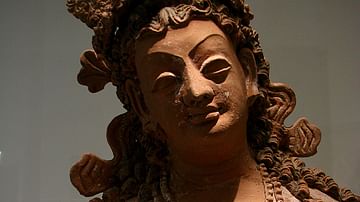Buddhism began in the region of modern-day India, founded by Siddhartha Gautama (the Buddha, l. c. 563-c. 483 BCE), and developed between c. 400-383 BCE before it spread to other regions through the efforts of the Mauryan king Ashoka the Great (r. 268-232 BCE). Understood as both a philosophy and a religion, Buddhism today attracts adherents around the world.
This collection presents a brief history of the belief system, including two of the most famous works associated with it.










